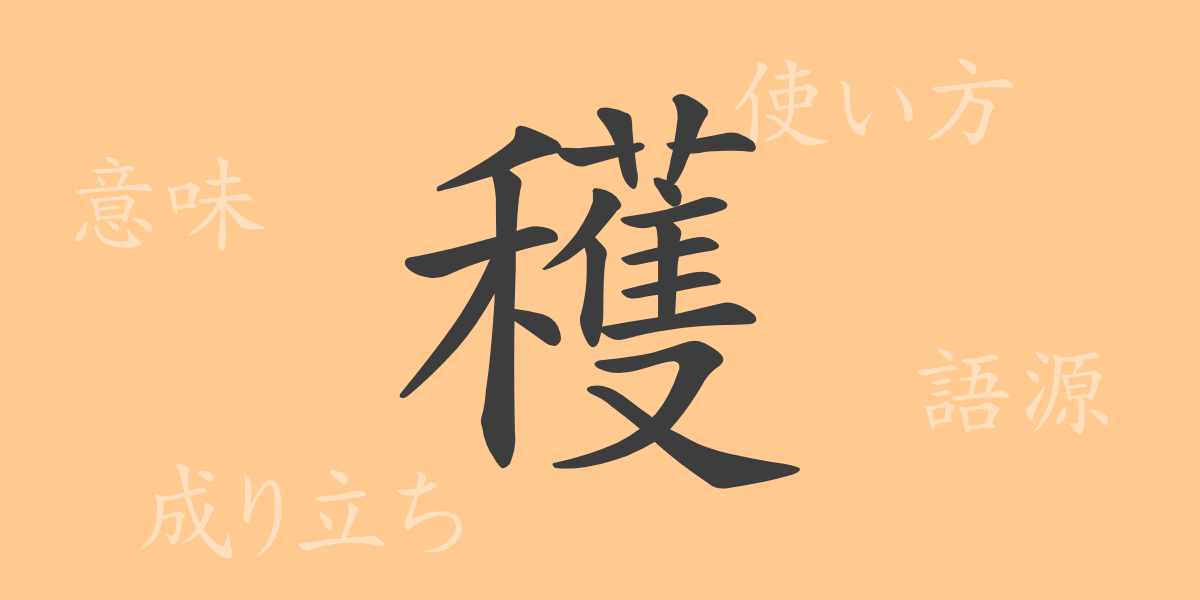Each character in the Japanese language, known as Kanji, carries its own unique history and meaning, and by learning about each one, we can gain a deeper understanding of the rich culture and history behind the words. In this article, we will delve into the common Japanese Kanji “穫” (Kaku), exploring its origins and modern usage. Let’s discover the unique charm of this Kanji and its role in the Japanese language.
The Origins of 穫 (Kaku)
The Kanji “穫” (Kaku) originated in ancient China. It initially meant “to harvest crops,” a word related to agricultural activities. This character is a combination of “禾” (Nogihen) and “获,” where “禾” represents grain, and “获” means to obtain, giving rise to the meaning of “to harvest” or “to gather grain.”
Meaning and Usage of 穫 (Kaku)
In modern Japanese, the meaning of “穫” (Kaku) primarily refers to “harvest.” It is used to describe the act of collecting mature crops and the results of this activity. It can also metaphorically represent the fruits of one’s efforts or the benefits gained as a result of hard work.
Readings, Stroke Count, and Radical of 穫 (Kaku)
The Kanji “穫” (Kaku) has unique readings and structure.
- Readings: The Onyomi (Sino-Japanese reading) is “かく” (Kaku), and there is no particular Kunyomi (native Japanese reading).
- Stroke Count: It has a total of 18 strokes.
- Radical: The radical is “禾” (Nogihen).
Idioms, Phrases, and Proverbs Using 穫 (Kaku) and Their Meanings
There are many idioms, phrases, and proverbs that include “穫” (Kaku) in the Japanese language. For instance, “豊穫” (Houkaku) means a bountiful harvest, while “収穫期” (Shuukakuki) refers to the period when crops can be harvested. Also, “大穫り” (Oodo-ri) is used to signify a good harvest, and “成果を穫る” (Seika- wo -Ka-ku) expresses the idea of reaping the rewards of one’s efforts.
Summary of 穫 (Kaku)
The Kanji “穫” (Kaku) holds significant meaning in Japan, a country deeply rooted in agricultural culture. Stemming from its fundamental meaning of harvest, it has evolved to be used in various idioms and expressions, symbolizing the fruits of labor and success in the Japanese language. Understanding the multifaceted nature of a single Kanji character is incredibly valuable in appreciating the depth of the Japanese language.

























